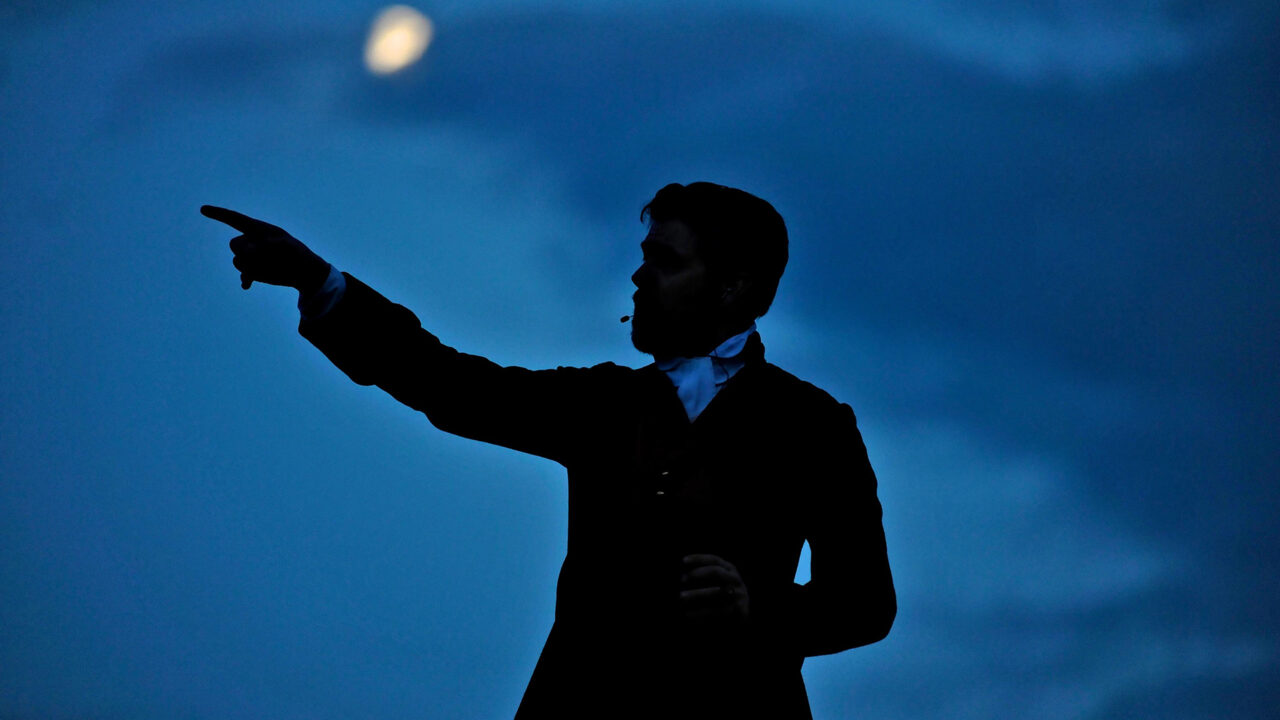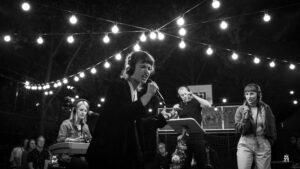- Posted on May 2nd, 2023
Slung Low’s Environmental Commitments

Slung Low is an award-winning theatre company specialising in making epic productions in non-theatre spaces, often with large community performance companies at their heart. Based in Leeds, they are a building-based organisation set in an urban context. Their environmental policy and action plan is aligned with the city of Leeds’ broader commitments to be carbon neutral by 2030 and uses a combination of quantitative and qualitative data to measure, track and meet the company’s environmental commitments.
Read on to find out more how they use qualitative data…
In line with our mission to reduce our carbon footprint, we measure our key impact areas – electricity use, water and vehicles. Reviewing the data allows us to identify the hotspots and heavy use areas, and think about how we might reduce them. We use data to track reductions in emissions over time, reporting annually using Julie’s Bicycle’s Creative Climate Tools.
However, we are in a resetting year as we have just moved venues. This brings new challenges and different approaches to meeting our environmental commitments. Our biggest challenge is reducing electricity usage whilst maintaining a working temperature, so we will have a new baseline with the new building. Once we know our baseline then we are likely to focus on both our immediate reductions and more long-term thinking, crucially how we plan on changing the nature of our work to have a more consistent and lighter environmental impact. One thing we have found is that working more collegiately and sharing resources and assets has been a large part of the company for years now but it’s becoming increasingly clear that this needs to increase. The benefits this has to sustainability, as well as to other considerations, are substantial.

Use of qualitative data
In terms of recording data, our qualitative reporting is around the husbandry. We have over 16 acres of semi-ancient woodland and the use of that space by community groups. This is much harder in terms of easy data but the potential benefits and rewards are great.
The woodland is used by a school, focused on pupils with special educational needs. Although the school is from Oldham, the woodland is the nearest space where the children can spend long periods of time in nature working together without disturbance. It is clear the protection of the woodland has real immediate emotional impact for this specific group of school pupils and other groups. The woodland is used by us primarily as a teaching space, the cultural community college had a huge impact on people’s confidence and self-worth and this was tracked primarily through a series of extended interviews.
At our venue, we measure the experiences of all visitors, participants and audience members. For instance, in our woodlands, we track people who are booking the space. We pay attention to what people say about their experience, so it is currently a less formalised way of capturing people’s feedback: through conversations, testimonials and other evaluation techniques. We are working with academic Dr. Rachel Perry across a number of projects in evaluating impact and improved methodologies for the future.

Photo by James Phillips

Check out Julie’s Bicycle’s Creative Climate Tools
This case study was written by Slung Low.
Resource Materials
Download